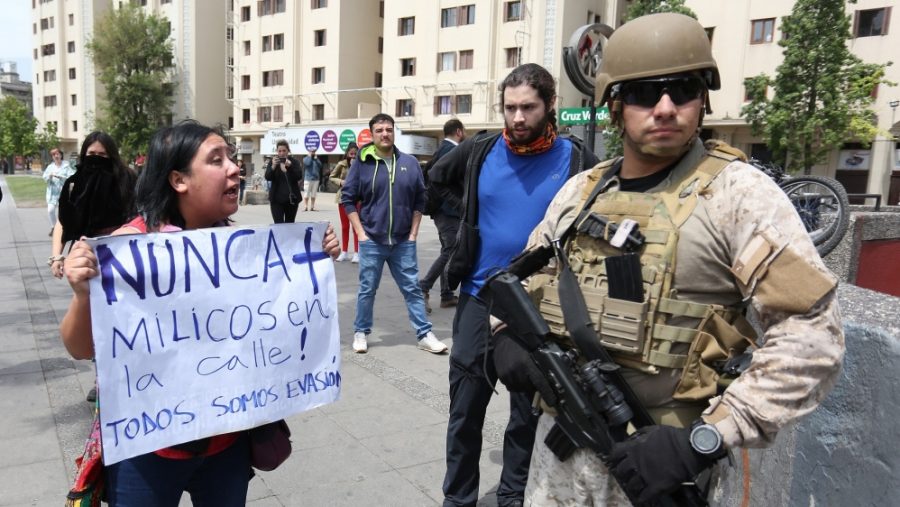Chilean Protests: Civil Unrest
In Chile, violent protests have been going on for weeks regarding inequality and high costs of living. Chile’s president, Sebastián Piñera, declared a state of emergency and issued curfews for citizens.
At this time, the violence of these protests has caused the deaths of at least 18 people. That is an increase from a previous report of 15.
Friction between the police and protestors has resulted in the use of rubber bullets and tear gas. Chile has not seen protests of this caliber since the 1990s after the end of the regime of military dictator Augusto Pinochet.
How did this civil unrest begin? Earlier in the month, the Chilean government announced that the fares for rush hour transportation would rise by 0.3 pecos [the equivalent of USD $0.04].
Many people were outraged by the increase. In response, the Minister of Economy suggested that patrons of the metro wake up earlier to avoid paying the higher fare.
After hearing his remarks, student-led demonstrations of protest began. People began jumping over turnstiles, and even destroying them, to avoid paying. Since the dictatorship of the ’90s, children of all ages have been large proponents of protest.
Soon, the protests went beyond the metros. Businesses were burnt down, including metro stations, grocery stores, and gas stations, which lead to Piñera’s announcement of a state of emergency.
However, this did not stop protesting. People lined the streets throughout the country, calling for the president’s resignation.
It may seem like overkill for the citizens to act this way over a few cents’ increase. But their anger goes deeper than the raise in metro fare.
Citizens are also upset because of a number of inequalities in their country. The cost of living increases while wages do not. Poor education and healthcare systems are another reason that caused the protest.
José Miguel Ahumada, a political economist and associate professor at the University of Chile, says that the country is “one of the most unequal countries in Latin America.”
And not much has been done in the past thirty years to improve conditions since the dictatorship. Though the president tried to appease the people by offering a social reform package, it was to no avail. Large companies and a number of organizations began striking.
Adding insult to injury, the state of emergency technically prevented citizens from free movement and assembly.
State of emergency announcements are typically used to maintain public order and safety. For example, the last time Chile declared a state of emergency was in the aftermath of the 2010 earthquake.
But this time, the order did not do much. Protesters still demonstrated in the streets.
The president has been criticized for calling the state of emergency so quickly before addressing the public. He justified that this was done to ensure the safety of citizens by putting military personnel on the streets.
Piñera has been accused of blaming the public for the issues rather than the government. Nevertheless, he released a reform package containing a minimum wage, pension increase, and a stable electricity cost.
Some citizens thought the reform package was good enough. Others thought he could have done better.
As for the wounded, dead, and arrested, official statistics remain questionable. There are currently eighteen confirmed dead. Some victims died after sustaining injuries from looting, while others died at the hands of the military.
The National Institute of Human Rights reports that more than a thousand citizens have gone to the hospital with injuries correlated to the protests. Over 2,000 people have been detained.
Videos on social media of violence against the protestors have surfaced. This has caused allegations of extreme mistreatment of the protestors. Pressure from the United Nations to investigate these allegations was placed on officials in the capital city of Santiago.
Though citizens are still calling for Piñera’s resignation, it seems unlikely to happen. However, the mass of Chile’s people will not be pleased until more is done to improve their country.

